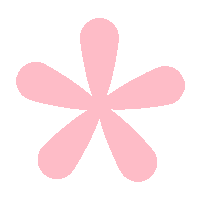Written by / Chen Huijuan, Associate Professor at Shanghai University of Traditional Chinese Medicine
The circulation of blood in the human bodyflows through the meridiansto reach various parts of the bodyto nourish and support them.
If blood stagnates or is obstructed in the organs and meridians, it can lead to various diseases.
01What is the difference between Xue Yu (Blood Stasis) and Xue Yu (Blood Stagnation)?

Xue Yu (Blood Stasis)
is a pathological product formed due to obstruction in blood circulation and is also a causative factor.If blood flow is slow or obstructed during circulation, or if blood accumulates in the body after bleeding, it will form Xue Yu.
Clinical manifestations of Xue Yu
Pain:When blood vessels are obstructed, pain occurs. Pain caused by Xue Yu is often fixed in one location, is significant, sharp, and worsens at night.
Masses:Prolonged Xue Yu can easily form palpable masses.
Bleeding:When Xue Yu obstructs the internal flow of blood, it can lead to bleeding. The blood is generally dark purple, often mixed with clots, and may not stop easily.
Dark Purple Color:Commonly seen as bluish-purple, dark, or dull colors, such as a dark complexion, purple lips, a purple tongue, or dark veins under the skin.
Pulse: Choppy or Intermittent:Obstruction from Xue Yu often results in a choppy pulse or an intermittent pulse.

Xue Yu (Blood Stagnation)
is a state of blood flow obstruction or stagnation that occurs under pathological conditions, falling within the scope of TCM pathogenesis.
Xue Yu emphasizes the “blood” aspect, focusing on the obstructed and stagnant blood.
Xue Yu emphasizes the “stagnation” aspect, focusing on the state of blood coagulation and obstruction.
In terms of formation, Xue Yu and Xue Yu often have a causal relationship. Various factors leading to Qi deficiency, Qi stagnation, blood cold, blood heat, or trauma can cause blood flow obstruction, coagulation, or bleeding, resulting in Xue Yu; conversely, Xue Yu can exacerbate or cause a pathological state of blood stagnation.
02Flexibility in Using Herbs for Activating Blood and Resolving Stasis

Different factors can cause Xue Yu,such as Qi deficiency, Qi stagnation, blood cold, and blood heat,so when activating blood and resolving stasis, one should not forget to address the root cause of the disease.


Qi Deficiencyleading to Xue Yu: Often requires Qi tonifying and blood activating herbs, such as Ren Shen (Ginseng), Huang Qi (Astragalus), etc.
Qi Stagnationleading to Xue Yu: Can be combined with Qi regulating herbs, such as Xiang Fu (Cyperus) and Chai Hu (Bupleurum).
Yang Deficiencyleading to Xue Yu due to cold: Can be combined with warming and channel-opening herbs, such as Fu Zi (Aconite) and Gui Zhi (Cinnamon Twig).
Blood Heatleading to Xue Yu:Can use herbs that clear heat and resolve stasis, such as Mu Dan Pi (Moutan Root), Chi Shao (Red Peony), and Bai Jiang Cao (Patrinia).
Phlegm-Damp Obstructionleading to Xue Yu: Can be combined with phlegm-resolving herbs, such as Ban Xia (Pinellia) and Shi Chang Pu (Acorus).
Herbs for activating blood and resolving stasis can be categorized into three levels based on their efficacy:harmonizing blood and promoting circulation, activating blood and dispersing stasis, breaking blood and driving out stasis.
Harmonizing Blood and Promoting Circulation Herbs
Dang Gui (Angelica Sinensis), Dan Shen (Salvia), Chi Shao (Red Peony), etc., are the mildest and are commonly used for mild blood flow obstruction and light Xue Yu.
Activating Blood and Dispersing Stasis Herbs
Tao Ren (Peach Kernel), Hong Hua (Safflower), Ze Lan (Lycopus), Chuan Xiong (Ligusticum), etc., are stronger than harmonizing blood herbs and are suitable for more severe Xue Yu with stasis formation.
Breaking Blood and Driving Out Stasis Herbs
San Leng (Sparganium), E Zhu (Curcuma), Shui Zhi (Leech), Tu Bie Chong (Eupolyphaga), etc., are the most potent and are suitable for severe Xue Yu with significant stasis or mass formation.
It is important to note that various herbs and prescriptions for activating blood and resolving stasis should be selected rationally based on the type of disease, severity of the condition, strength of the constitution, and accompanying symptoms.
Due to the nature of blood-activating and stasis-resolving herbs, which can consume Qi and injure blood, caution should be exercised in individuals with a tendency to bleed or those with Qi and blood deficiency. Pregnant women should avoid these herbs, and women during menstruation should select herbs based on their menstrual cycle and flow.
(The herbal formulas mentioned in this article should be used under the guidance of a qualified practitioner)
Source: “Traditional Chinese Medicine Health and Wellness” Magazine, June 2022 IssueEdited by: Li SihanReviewed by:Dong Luyan, Tao XianningPrevious Recommendations


Scan the QR code below to learn more about health knowledge



Click below to purchase the magazine

